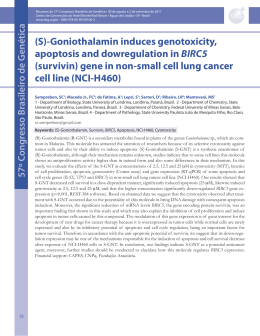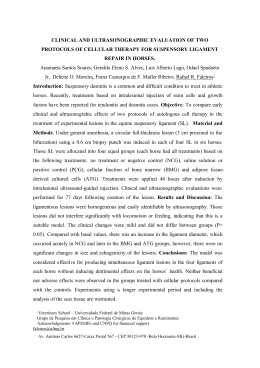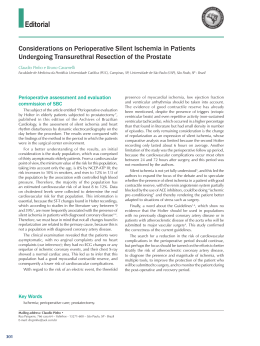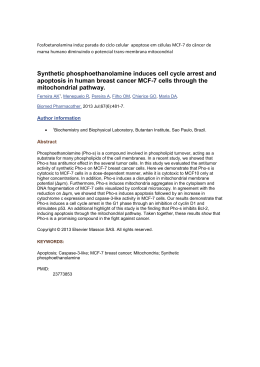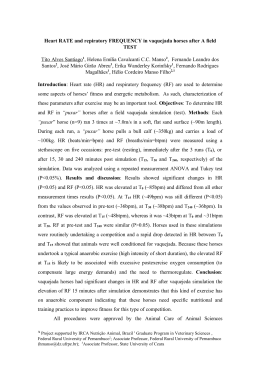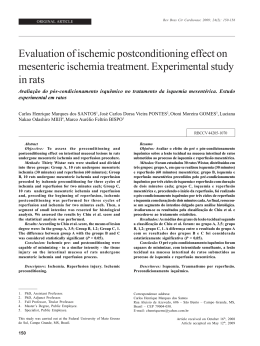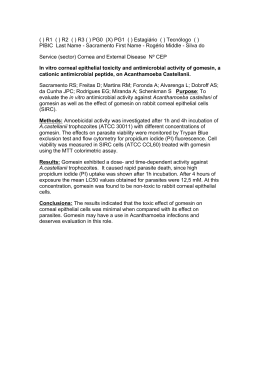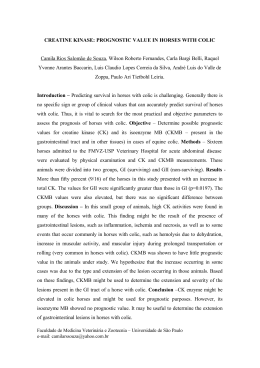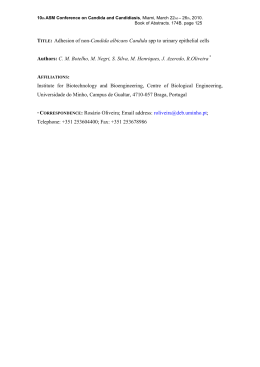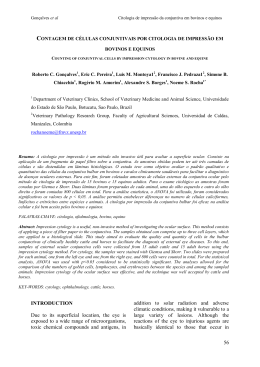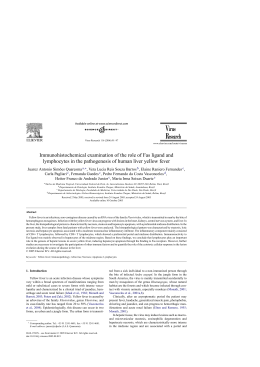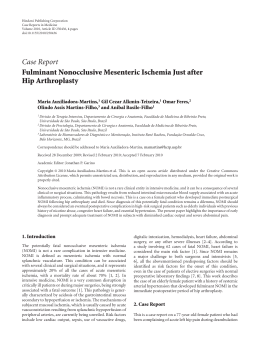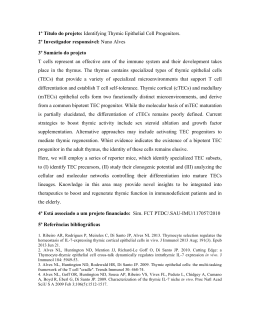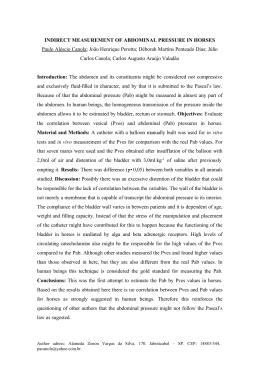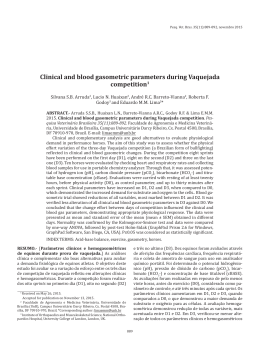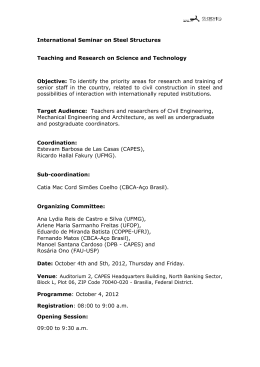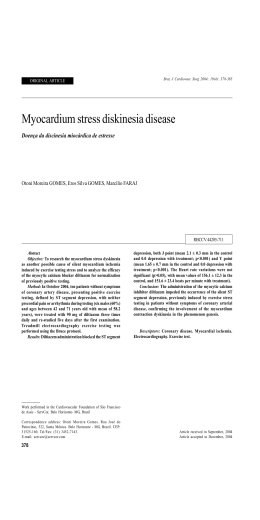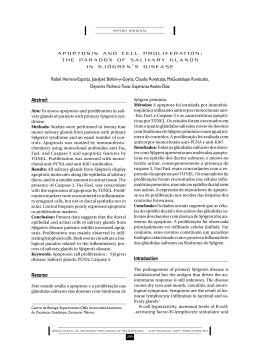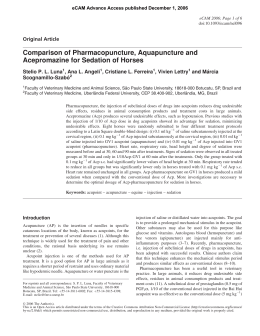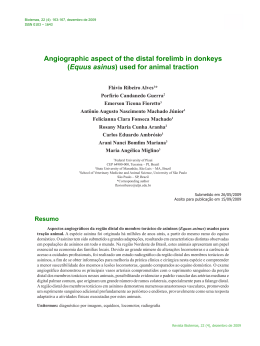HYDROCORTISONE DECREASES APOPTOSIS IN THE MUCOSA OF EQUINE JEJUNUN SUBJECTED TO ISCHEMIA AND REPERFUSION Geraldo Eleno S. Alves1, Heloisa Maria Falcão Mendes, Tiago G. S. Alves, Rafael R. Faleiros, Anilton César Vasconcelos, Renato L. Santos, Jorge J. M. Rio Tinto Introduction and objectives: The aim of this study was to clarify the effect of hydrocortisone sodium succinate (HSS) on apoptosis in epithelial cells of equine jejunum subjected to ischemia and reperfusion. Methods: Ten horses were allocated into two groups: untreated (NT) and treated (T) with HSS. Venous ischemia for 2 hours was induced in a jejunal segment from all horses in vivo. Horses, from the treated group received HSS (4.0 mg/kg, IV) after 1h of ischemia. Full-thickness intestinal samples were collected prior to ischemia, after 2h of ischemia, and after 2h and 12h of reperfusion. Samples were processed histologically and apoptosis was detected using the TUNEL technique. Ten histological images of the jejunal crypts of each sample were morphometrically analyzed. The number of apoptotic cells per field was determined. Results: After 12h of reperfusion, apoptosis in the treated group (13.12 ± 7.08 cells/field) was significantly lower when compared to untreated (27.34 ± 12.44) group (P = 0.012). Discussion: The results of this study demonstrated that HSS inhibits apoptosis in the ischemic/reperfused epithelial cells of jejunum. A study carried out previously in the same horses demonstrated that injury associated with disrupted epithelium in jejunal mucosa after 12h of reperfusion also was lower in treated animals. A possible mechanism by which HSS decreased epithelial injury could be inhibition of apoptosis of enterocytes. Glucocorticoids can inhibit or induce apoptosis, depending on the type of cell. When inhibiting apoptosis, as in this study, increased expression of the anti-apoptotic gene Bcl-2 and the inhibition of pro-apoptotic cytokines are effects reported in literature. Conclusion: HSS has beneficial effect for the jejunal mucosa, and may contribute to the maintenance of the epithelial integrity in horses with intestinal ischemia and reperfusion lesions. Committee 1 Veterinary School, Federal University of Minas Gerais, Brazil Grupo de Pesquisa em Gastroenterologia Eqüina. Acknowledgments: FAPEMIG and CNPQ for financial support. Escola de Veterinária, Av. Antônio Carlos, 6627. Belo Horizonte, MG 31270-901 [email protected] of Ethics: CETEA/UFMG – 189/08
Download
